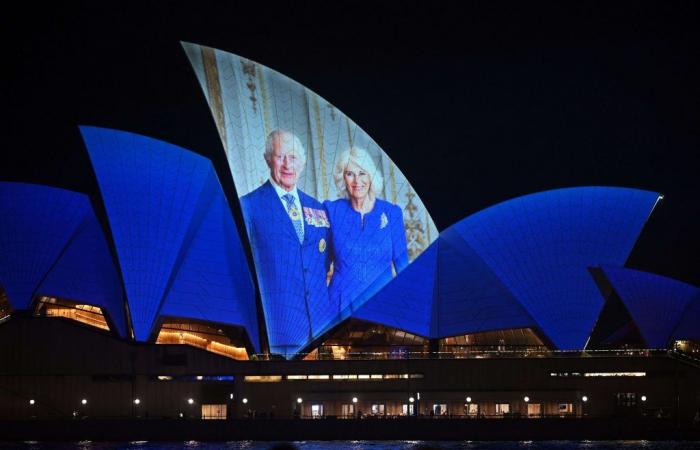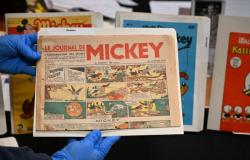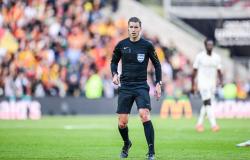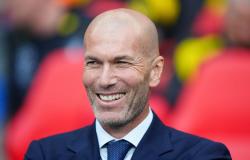The visit is historic. King Charles III and Queen Camilla are touring Australia and Samoa, his first visit to Sydney as monarch, although he has already visited this former colony at the end of the world sixteen times. It is also the first long journey of the king since he underwent treatment for cancer, treatment which he interrupted on the advice of his doctors for the duration of this journey of around ten days.
The program is grueling, worthy of a marathon and the king has prepared for it. Until October 26, King Charles III and Queen Camilla will visit Sydney and Canberra, also including a trip to the Samoa Islands where Charles III will open for the first time in his reign the meeting of Commonwealth Heads of Government of which he is the leader following his mother Elizabeth II. Of the 56 states that form this supra-governmental organization, only 15 are kingdoms of which Charles III is the Head. With each royal visit to Australia, where the royal couple was welcomed by the rain and by the new Governor General Samantha Mostyn, the Australian media relaunches the same sea serpent: when will Australia finally emancipate itself from British monarchy and this crown which sits thousands of kilometers away.
Public opinion is still divided between monarchist loyalists who want to maintain the historical link with the kingdom from which they come and who are unconditional fans of the Windsor royal family, and Republicans who advocate an election of a candidate local to the supreme judiciary.
We remember that in 1999 a referendum established that 55% of Australians rejected the idea of becoming a Republic. Especially since no one from Sydney to Canberra and from Melbourne to Perth, via Brisbane, Adelaide and Alice Springs wanted to offend Elizabeth II who had loved Australia so much where she had been the first sovereign to lay the foot, constantly returning to warm the ardor of his subjects from the ends of the world.
Charles’ affection for the region
The fact that King Charles is traveling in turn testifies to his feelings towards Australia and the Commonwealth; he often spoke of his deep affection for this country in which he spent two terms of training at the Timbertop school, in the bush, and which he visited 15 times as Prince of Wales. If many political leaders have pretexted a commitment not to welcome the king and queen on Australian soil – notably – Jacinta Allan, Steven Miles, Roger Cook and Peter Malinauskasse, Prime Ministers of Victoria, Queensland, Western Australia and South Australia – the public will be there.
The rest after this ad
However, this visit is a diplomatic challenge and the English press has continued to describe these sudden withdrawals as a “slap” or a “rebuff”. The spokesperson for the Australian Monarchist League, Bev McArthur, was quick to deplore the lack of cooperation from ministers and their lack of respect towards the English royal family. “All prime ministers and ministers have sworn an oath of allegiance to our monarch and it is a monumental insult to spit into his outstretched hand as a sign of friendship,” she told the “Herald Sun”. This is all the more counterproductive since a poll revealed that to date, only 33% of Australians still wanted to become a Republic.
A popular king despite everything
Some understood that by casting off England, Australia would tie itself up with China and would be seriously short of allies in the Pacific. Buckingham Palace advisors trust the King and Queen, through their simplicity and humor, to ease tensions and make this trip a triumphant tour. And who would dare attack a 75-year-old monarch who, sick with cancer, agrees to stop his treatment to meet his Australian subjects? The king has a habit of hiding behind the sovereign will of the Australians. It’s up to them to choose their destiny!
The fact remains that this trip and the meeting of heads of government of the Commonwealth, in which the king participates for the first time as “head” of the organization, are marked by calls for reparation of the damage caused by slavery. In response, Sir Keir Starmer’s British government has made it clear that the issue is “not on the table” as far as it is concerned, but such is the strength of campaigner sentiment in the Caribbean that the king will come under significant pressure to speak, or at least show that he is willing to listen, about slavery and human trafficking.
For a long time, the British royal family has pacified its relations with the Australian Aborigines and everyone is awaiting the big moment of the royal visit, when the sovereign will speak next Monday in front of the federal parliament in Canberra, seventy years after his mother the Queen Elizabeth II. This means that King Charles III, expected at the turning point, still remains at the center of Australian politics, despite the many politicians who shun him.






